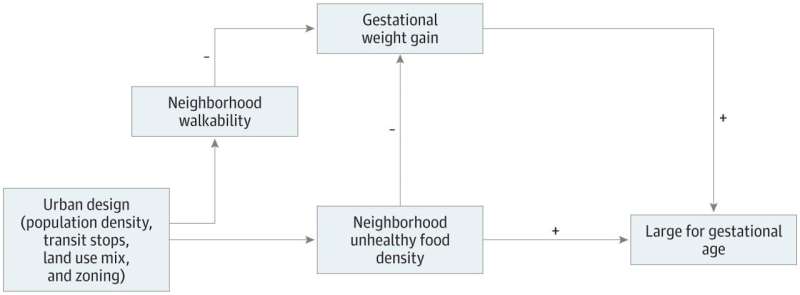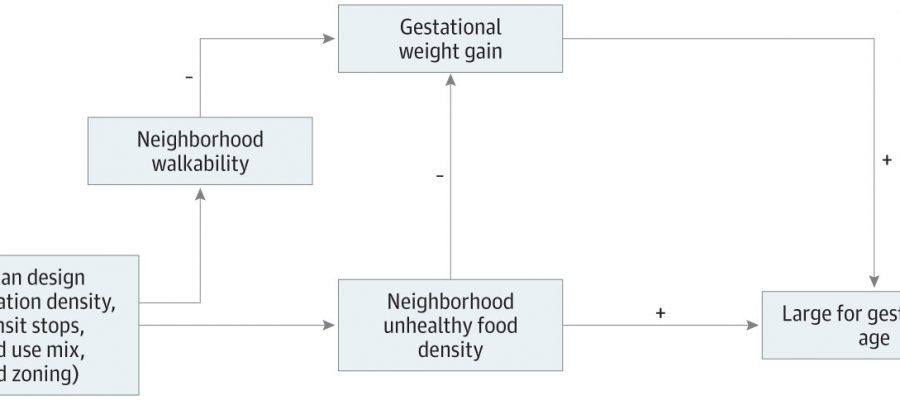
Higher neighborhood density of unhealthy retail food establishments was associated with a higher risk of delivering a baby that was large-for-gestational age, according to a new study at Columbia Mailman School of Public Health, while neighborhoods with a high density of healthy food retail establishments was linked with a lower risk of giving birth to a baby that was small-for-gestational age.
Babies born either small- or large-for-gestational age, a measure of birth weight adjusted for length of pregnancy, are at greater risk for long term health complications, but until now little was known about how neighborhood characteristics including walkability and the food environment, may affect birthweight outcomes. The results are published in JAMA Network Open.
To evaluate links between birth weight and retail food environments and walkability in neighborhoods of New York City the researchers analyzed the records of 106,194 singleton births in the 2015 Vital Statistics records from the NYC Department of Health and Mental Hygiene. Full-service supermarkets and fruit and vegetable markets were classified as healthy, and fast-food outlets, convenience stores, and candy stores as unhealthy.
“Our prior work has shown that these healthy and unhealthy neighborhood retail food environment classifications are associated with residents’ body mass index (BMI) in New York City,” noted Eliza Kinsey, Ph.D., the first author and a former post-doctoral fellow in epidemiology at Columbia Mailman School, now an assistant professor at the University of Pennsylvania.
The prevalence of babies born small for gestational age was 13 percent and the percent born large for gestational age was 8.4 percent. Residing in the most dense healthy retail food environment compared to the lowest was associated with a 11 percent lower risk of delivering a baby whose weight was low for gestational age.
Conversely, compared to residing in a neighborhood with the lowest density of unhealthy retail food outlets, residing in a neighborhood with the highest density of these unhealthy food outlets was associated with a 16 to 18 percent increase in the risk of a baby being born large for gestational age. There were no significant associations between neighborhood walkability and birthweight outcomes.
“Our results further support the value of encouraging use of urban design and planning guidelines to improve food environments and ultimately healthy pregnancies and birth weight,” said Andrew Rundle, DrPH, professor of epidemiology at Columbia School of Public Health, and senior author.
The high density and low car ownership may limit the generalizability of the findings to populations outside of New York City, particularly suburban and rural areas, noted the researchers. “However, given that the percentage of the world population living in urban area is projected to grow to 68 percent by 2050, our findings for NYC are likely relevant for much of the global population,” observed Rundle.
This paper is the third part in a trilogy of research led by Dr. Rundle at Columbia Mailman School showing how built environments are linked to pregnancy and birth outcomes. The earlier papers found that higher neighborhood walkability was protective against excess gestational weight gain and against gestational diabetes.
More information:
Eliza W. Kinsey et al, Neighborhood Food Environment and Birth Weight Outcomes in New York City, JAMA Network Open (2023). DOI: 10.1001/jamanetworkopen.2023.17952 jamanetwork.com/journals/jaman … /fullarticle/2805935
Journal information:
JAMA Network Open
Source: Read Full Article
